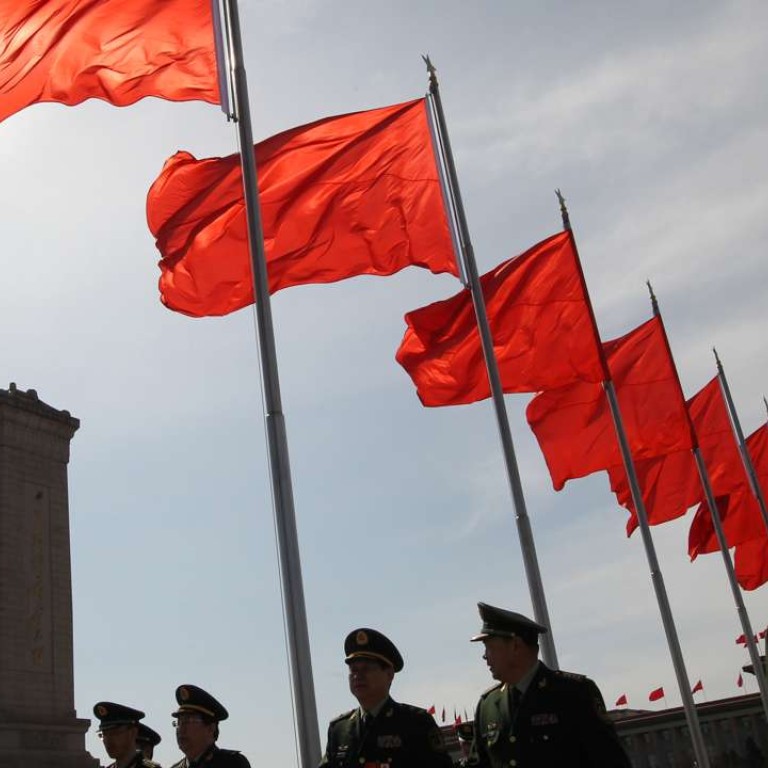
China tightens grip over social groups through greater Communist Party presence
New rules will require party branches or cadres to be installed within all social organisations to guide and supervise them
China’s Communist Party will tighten control over social groups by installing local party branches or liaison cadres in those organisations, according to new rules released late on Sunday.
The guidelines, which apply to a range of social organisations including semi-government bodies, social service foundations, trade unions and NGOs, come on the back of a controversial foreign NGO management law imposed earlier this year.
The new rules, stated in a lengthy document, were jointly released by the general offices of the State Council and Communist Party on Sunday as part of overall reform plans to manage domestic social organisations.
According to the document, a universal registry system for all social organisations will be set up by 2020.
The document stressed the need to strengthen the party’s role in guiding these groups and urged reform and innovation in supervising them.
“The party will have to play ... the political role within social organisations, which should strengthen party building ... to ensure that the social organisations are developing on the correct political path,” the document stated, adding that party control was a basic principle.
According to the rules, major national social bodies can set up party groups while others can start with party representatives or Communist Youth League branches.
Social groups that provide elderly care, entertainment services or that spread agricultural technology know-how at the community level will be allowed a simplified registry process.
Industry associations and those involved in science, charity or urban and rural community services will be able to directly register with civil affairs authorities or local governments.
Industry associations and guilds that have been functioning as semi-government institutions will have to sever their links with the government, and government officials will no longer be allowed to keep their titles as heads of such associations, according to the guidelines.
All other social groups are required to undergo stringent checks by related government authorities before registering with civil affairs authorities. The government bodies will also be responsible for supervising their activities, according to the document.
In a related policy document, a draft regulation by the Ministry of Civil Affairs lists similar requirements for a range of social groups excluding industry associations, science groups, charities for poverty and disaster relief, among others.
This means that groups that have enjoyed a boom in environmental protection, lesbian, gay, bisexual and transgender (LGBT) rights as well as women’s issues over the past decade will all be subject to checks by the relevant authorities.
The ministry released the draft rules governing social groups’ registry system after consolidating opinions from the public.
Environmentalists slammed the ministry’s move as backpedalling from the relatively smooth registry process that grassroots green groups had been enjoying.
Environmental protection was not a politically sensitive matter, the environmentalists said, arguing that such groups should enjoy greater autonomy.
Under the new law, all foreign NGOs are required to register with and obtain approval from the police rather than the Ministry of Civil Affairs like their domestic counterparts.
The new law also lists specific fields in which foreign NGOs are allowed to work, including in economics, education, science and technology, culture, health, sports, environmental protection, as well as disaster and poverty relief.
“The document is a consensus reached within the party-state system that China needs social organisations, which – on one hand – is a good thing,” said Jia Xijin, a professor at Tsinghua University’s NGO Research Institute. “But obviously it falls behind the rapid social development already taking place on the ground.”
Wu Changhua, who has been a director of various NGOs over the past decade, said the rules finally gave a clear signal on how China’s leadership wanted to govern the organisations.
“It has made clear that social groups need to abide by laws and self-discipline. The government also made clear that they wanted them to serve communities and disadvantaged groups, and were willing to pay for such services,” Wu said.
But Wu also said the top-down approach to managing the groups could come at the price of their independence and make it harder for them to monitor the government.

